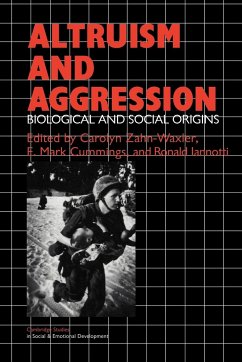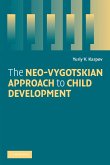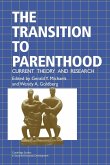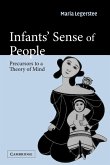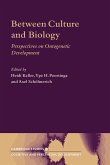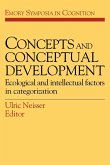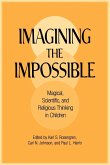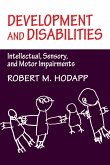Carolyn Zahn-Waxler / E. Cummings / J. Iannotti (eds.)Social and Biological Origins
Altruism and Aggression
Social and Biological Origins
Herausgeber: Zahn-Waxler, Carolyn; Cummings, E. Mark; Iannotti, Ronald J.
Carolyn Zahn-Waxler / E. Cummings / J. Iannotti (eds.)Social and Biological Origins
Altruism and Aggression
Social and Biological Origins
Herausgeber: Zahn-Waxler, Carolyn; Cummings, E. Mark; Iannotti, Ronald J.
- Broschiertes Buch
- Merkliste
- Auf die Merkliste
- Bewerten Bewerten
- Teilen
- Produkt teilen
- Produkterinnerung
- Produkterinnerung
Altruism and Aggression explores the genetic underpinnings of affiliative and aggressive orientations as well as the biological correlates of these behaviors. The authors consider environmental variables--family patterns, childrearing practices--that influence prosocial and antisocial behaviors. And they examine internal processes, such as empathy, socio-inferential abilities, and cognitive attributions, that regulate 'kindness' and 'selfishness.'
Andere Kunden interessierten sich auch für
![The Neo-Vygotskian Approach to Child Development The Neo-Vygotskian Approach to Child Development]() Yuriy V. KarpovThe Neo-Vygotskian Approach to Child Development44,99 €
Yuriy V. KarpovThe Neo-Vygotskian Approach to Child Development44,99 €![The Transition to Parenthood The Transition to Parenthood]() Gerald Y. MichaelsThe Transition to Parenthood47,99 €
Gerald Y. MichaelsThe Transition to Parenthood47,99 €![Infants' Sense of People Infants' Sense of People]() Maria LegersteeInfants' Sense of People46,99 €
Maria LegersteeInfants' Sense of People46,99 €![Between Culture and Biology Between Culture and Biology]() Heidi Keller / H. Poortinga / Axel Schölmerich (eds.)Between Culture and Biology48,99 €
Heidi Keller / H. Poortinga / Axel Schölmerich (eds.)Between Culture and Biology48,99 €![Concepts and Conceptual Development Concepts and Conceptual Development]() Concepts and Conceptual Development51,99 €
Concepts and Conceptual Development51,99 €![Imagining the Impossible Imagining the Impossible]() Karl S. RosengrenImagining the Impossible52,99 €
Karl S. RosengrenImagining the Impossible52,99 €![Development and Disabilities Development and Disabilities]() Robert M. HodappDevelopment and Disabilities46,99 €
Robert M. HodappDevelopment and Disabilities46,99 €-
-
-
Altruism and Aggression explores the genetic underpinnings of affiliative and aggressive orientations as well as the biological correlates of these behaviors. The authors consider environmental variables--family patterns, childrearing practices--that influence prosocial and antisocial behaviors. And they examine internal processes, such as empathy, socio-inferential abilities, and cognitive attributions, that regulate 'kindness' and 'selfishness.'
Produktdetails
- Produktdetails
- Verlag: Cambridge University Press
- Seitenzahl: 352
- Erscheinungstermin: 6. November 2004
- Englisch
- Abmessung: 229mm x 152mm x 21mm
- Gewicht: 572g
- ISBN-13: 9780521423670
- ISBN-10: 0521423678
- Artikelnr.: 22000916
- Herstellerkennzeichnung
- Libri GmbH
- Europaallee 1
- 36244 Bad Hersfeld
- gpsr@libri.de
- Verlag: Cambridge University Press
- Seitenzahl: 352
- Erscheinungstermin: 6. November 2004
- Englisch
- Abmessung: 229mm x 152mm x 21mm
- Gewicht: 572g
- ISBN-13: 9780521423670
- ISBN-10: 0521423678
- Artikelnr.: 22000916
- Herstellerkennzeichnung
- Libri GmbH
- Europaallee 1
- 36244 Bad Hersfeld
- gpsr@libri.de
List of contributors, Editorial preface; Introduction; Part I. Biological,
sociobiological, and ethological approaches to the stud of altruism and
aggression: 1. The psychobiology of prosocial behaviors: separation
distress, play, and altruism Jaak Panksepp; 2. An evolutionary and
developmental perspective on aggressive patterns Robert B. Cairns; 3.
Development in reciprocity through friendship James Youniss; 4. The
prosocial and antisocial functions of preschool aggression: an ethological
study of triadic conflict among young children F. F. Strayer and J. M.
Noel; Part II. Development, socialization, and mediators of altruism and
aggression in children: 5. A conception of the determinants and development
of altruism and aggression: motives, the self, and the environment Ervin
Staub; 6. Early organization of altruism and aggression: developmental
patterns and individual differences E. Mark Cummings, Barbara Hollenbeck,
Ronald Iannotti, Marian Radke-Yarrow, and Carolyn Zahn-Waxler; 7.
Aggression and altruism: a personality perspective Seymour Feshbach and
Norma Deitch Feshbach; 8. The socialization of prosocial behavior: theory
and reality Joan E. Grusec and Theodore Dix; 9. Social-interactional
patterns in families of abused and nonabused children John B. Reid; 10.
Naturalistic observation of cooperation, helping, and sharing and their
associations with empathy and affect Robert F. Marcus; 11. Social
information-processing variables in the development of aggression and
altruism in children Kenneth A. Dodge; Conclusions; Indexes.
sociobiological, and ethological approaches to the stud of altruism and
aggression: 1. The psychobiology of prosocial behaviors: separation
distress, play, and altruism Jaak Panksepp; 2. An evolutionary and
developmental perspective on aggressive patterns Robert B. Cairns; 3.
Development in reciprocity through friendship James Youniss; 4. The
prosocial and antisocial functions of preschool aggression: an ethological
study of triadic conflict among young children F. F. Strayer and J. M.
Noel; Part II. Development, socialization, and mediators of altruism and
aggression in children: 5. A conception of the determinants and development
of altruism and aggression: motives, the self, and the environment Ervin
Staub; 6. Early organization of altruism and aggression: developmental
patterns and individual differences E. Mark Cummings, Barbara Hollenbeck,
Ronald Iannotti, Marian Radke-Yarrow, and Carolyn Zahn-Waxler; 7.
Aggression and altruism: a personality perspective Seymour Feshbach and
Norma Deitch Feshbach; 8. The socialization of prosocial behavior: theory
and reality Joan E. Grusec and Theodore Dix; 9. Social-interactional
patterns in families of abused and nonabused children John B. Reid; 10.
Naturalistic observation of cooperation, helping, and sharing and their
associations with empathy and affect Robert F. Marcus; 11. Social
information-processing variables in the development of aggression and
altruism in children Kenneth A. Dodge; Conclusions; Indexes.
List of contributors, Editorial preface; Introduction; Part I. Biological,
sociobiological, and ethological approaches to the stud of altruism and
aggression: 1. The psychobiology of prosocial behaviors: separation
distress, play, and altruism Jaak Panksepp; 2. An evolutionary and
developmental perspective on aggressive patterns Robert B. Cairns; 3.
Development in reciprocity through friendship James Youniss; 4. The
prosocial and antisocial functions of preschool aggression: an ethological
study of triadic conflict among young children F. F. Strayer and J. M.
Noel; Part II. Development, socialization, and mediators of altruism and
aggression in children: 5. A conception of the determinants and development
of altruism and aggression: motives, the self, and the environment Ervin
Staub; 6. Early organization of altruism and aggression: developmental
patterns and individual differences E. Mark Cummings, Barbara Hollenbeck,
Ronald Iannotti, Marian Radke-Yarrow, and Carolyn Zahn-Waxler; 7.
Aggression and altruism: a personality perspective Seymour Feshbach and
Norma Deitch Feshbach; 8. The socialization of prosocial behavior: theory
and reality Joan E. Grusec and Theodore Dix; 9. Social-interactional
patterns in families of abused and nonabused children John B. Reid; 10.
Naturalistic observation of cooperation, helping, and sharing and their
associations with empathy and affect Robert F. Marcus; 11. Social
information-processing variables in the development of aggression and
altruism in children Kenneth A. Dodge; Conclusions; Indexes.
sociobiological, and ethological approaches to the stud of altruism and
aggression: 1. The psychobiology of prosocial behaviors: separation
distress, play, and altruism Jaak Panksepp; 2. An evolutionary and
developmental perspective on aggressive patterns Robert B. Cairns; 3.
Development in reciprocity through friendship James Youniss; 4. The
prosocial and antisocial functions of preschool aggression: an ethological
study of triadic conflict among young children F. F. Strayer and J. M.
Noel; Part II. Development, socialization, and mediators of altruism and
aggression in children: 5. A conception of the determinants and development
of altruism and aggression: motives, the self, and the environment Ervin
Staub; 6. Early organization of altruism and aggression: developmental
patterns and individual differences E. Mark Cummings, Barbara Hollenbeck,
Ronald Iannotti, Marian Radke-Yarrow, and Carolyn Zahn-Waxler; 7.
Aggression and altruism: a personality perspective Seymour Feshbach and
Norma Deitch Feshbach; 8. The socialization of prosocial behavior: theory
and reality Joan E. Grusec and Theodore Dix; 9. Social-interactional
patterns in families of abused and nonabused children John B. Reid; 10.
Naturalistic observation of cooperation, helping, and sharing and their
associations with empathy and affect Robert F. Marcus; 11. Social
information-processing variables in the development of aggression and
altruism in children Kenneth A. Dodge; Conclusions; Indexes.

